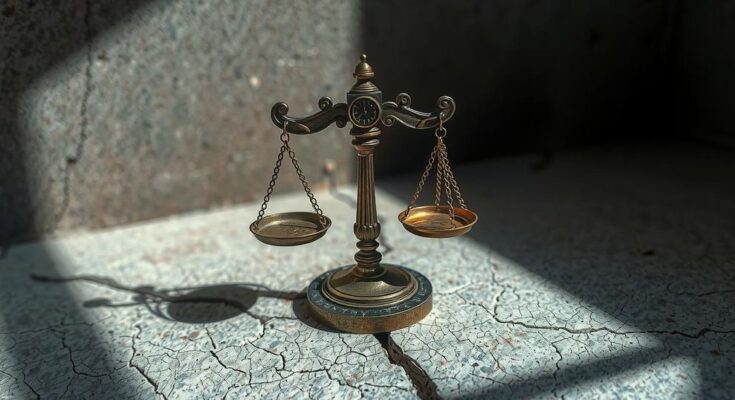In Georgia, a Russia-style crackdown has led to the imprisonment of over 40 individuals amid ongoing anti-government protests. One notable figure among the detainees is journalist Mzia Amaghlobeli, who has entered her third week of a hunger strike in Rustavi, struggling with her health. Arrested during a demonstration in Batumi, she is associated with two independent media outlets and faces serious charges, prompting concerns from human rights advocates about her safety.
Political tensions escalated after the ruling Georgian Dream party won elections, accused by the opposition of election fraud. This event has drawn Georgia closer to Russia, with the government recently halting EU accession talks and tightening restrictions on civil liberties. The Prime Minister has characterized the protests as dangerous, likening demonstrators to revolutionaries aiming for a major government upheaval similar to Ukraine’s 2014 uprising.
The government’s harsh measures against protestors reflect new laws reminiscent of Russian policies targeting rights organizations and media freedom. Reports indicate that detainees have faced physical and verbal abuse while in custody, a situation alarming many international human rights organizations. Alice Jill Edwards, a U.N. rapporteur, commented on the alarming pattern of aggression against peaceful protests.
Amaghlobeli’s reaction to police aggression, involving an altercation with a police chief, highlights the precarious conditions faced by detainees. Despite the Prime Minister’s promise to investigate police misconduct, Amaghlobeli remains subjected to severe charges and declining health. Urgent calls for intervention from European human rights officials stress that this situation transcends mere legal issues, becoming a matter of life and death.
Another individual among the detainees is Andro Chichinadze, a young actor who has been labeled as a violent protestor, a claim he and his supporters vehemently deny. His arrest, coupled with numerous others over minor charges during ongoing protests, points to a growing trend of suppression against dissent in Georgia. Echoes of a chilling atmosphere towards civic activism are clear, drawing parallels to Russia’s oppressive tactics.
As protests continue in Tbilisi, the Georgian government’s approach appears increasingly aggressive, with plans for tougher laws targeting demonstrators. Transparency International’s executive director remarked that the treatment of civic activists seems derived from the methods seen in Russia and Belarus. The sentiment is echoed by many, as families of the arrested navigate the fear and absurdity of the current legal landscape.
In Georgia, over 40 people have been jailed in a crackdown following anti-government protests, mirroring repressive measures observed in Russia. Journalist Mzia Amaghlobeli is on hunger strike, highlighting grave concerns about detainees’ wellbeing. The government’s response escalates following accusations of electoral fraud, leading to increased restrictions on civil rights. Prominent figures like actor Andro Chichinadze face serious charges in a climate of fear that suppresses dissent and media freedom.
Georgia’s political landscape is experiencing a severe crackdown reminiscent of Russia’s oppressive tactics, marked by the detention of journalists and activists in a widening wave of arrests following anti-government protests. The deteriorating situation for civil liberties poses significant threats to media freedom and dissenting voices within the country. As international scrutiny grows, calls for urgent action highlight the critical need for protecting human rights and addressing abuses within the Georgian judicial system.
Original Source: abcnews.go.com



